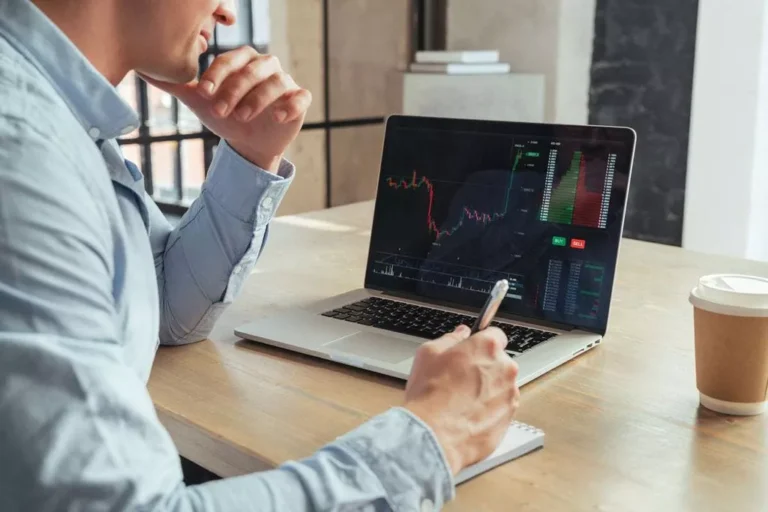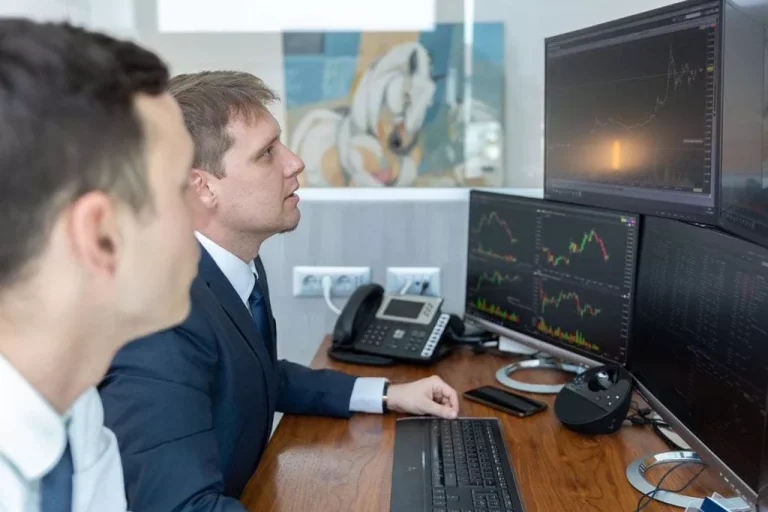To achieve this, they accept the risk that they can anticipate modifications available within the market well enough to defend in opposition to market threat. If you can understand the forex market construction as outlined above, you’ll have made some progress in understanding how the DD and NDD brokers operate. Choosing a forex broker would be the first essential decision you’ll make as a new trader. At the end, the dealer needs to understand which of the two fashions are higher suited for their trading. Because every trader is exclusive, it’s best that you simply spend time first by perceive your trading sample. Thus, on this side, the forex broker just isn’t really interested whether or not you win or lose, so long as you make a gentle variety of trades.

As they don’t charge a fee, they rely on marking up the value to make their earnings. When a dealer holds the trades inside and doesn´t move them to a different LP, s/he is taken into account a dealing desk broker. These kinds of brokers are referred to as market makers (MM) as well, because they create a market. They are much smaller than the immense interbank market however the same conditions apply and the rates are almost the same. One key distinction between dealing desk brokers and no dealing desk (NDD) brokers is how the trades are executed.
Dealing Desk Vs Non-dealing Desk Foreign Exchange Brokers
This is as a end result of they generate income via spreads and providing liquidity to their purchasers (That’s you!) usually by taking the other aspect of their trades. The intent, on their part, is to make trading handy and less expensive so retail merchants need to do business with them. Another advantage of no dealing desk brokers is that they eliminate the battle of interest that may exist with dealing desk brokers. Since they don’t take the opposite position to your trade, there is no incentive for them to control prices or stop-loss orders. These are the brokers that carry out purely match-making activity in the FX market, pairing their clients’ orders to the liquidity providers that may fulfill them.

This could be significantly useful for merchants who wish to execute trades quickly and on the desired value. Traders who use market makers /dealing desk brokers sometimes pay a exhausting and fast unfold with no commissions in any respect. Traders who use non-dealing desk brokers pay a spread which is often variable plus a fee on the entry and exit of all trades. Let’s first have a glance at buying and selling dimension; if you are a small retail dealer, you have not any alternative but to go to a dealing desk broker. Usually, this facet just isn’t properly advertised, but when the dealer provides micro and mini lot orders, then it inevitably has a dealing desk.
Dealing desk forex brokers earn cash by buying currencies at a lower cost than they sell them. They quote two prices for a currency pair – the bid worth and the ask price. The bid value is the worth at which they’re prepared to purchase the forex from the dealer, and the ask worth is the worth at which they’re willing to promote it to the trader. The distinction between the bid and ask costs is called the spread, and it’s how dealing desk brokers make their money.
What Sort Of Foreign Exchange Broker Should I Choose?
They might use electronic communication network (ECN) methods to make it work. Dealing desk brokers, also called market makers, have their very own in-house dealing desk. When you place a commerce with a dealing desk broker, they act as the counterparty to your commerce. For instance, if you go lengthy on a foreign money pair, the dealing desk dealer will take a short position. The reasoning behind this is because many newbies in forex trading lose cash. Thus, it makes more business sense for a dealing desk dealer to maintain these income in-house.
- In the world of foreign currency trading, one of many key selections that traders have to make is choosing the right type of foreign exchange broker.
- This is not to say that the dealing desk dealer has no access to liquidity providers, it surely does.
- In this scenario, the broker is acting as an middleman, taking the worth order from his shopper and executing the order on the liquidity provider’s quote.
- So, the distinction between this and STP is that an Electronic communication community provides you direct interplay with the liquidity providers and other ECN individuals.
- Here is a proof of the differences between the DD and NDD brokers.
One sort of foreign exchange broker isn’t necessarily better than the other in all circumstances. Typically, dealing desk brokers are clients of the large banks that function the interbank market liquidity. You can have a look at the construction of the forex market outlined earlier for steering. When the dealing desk brokers purchase Difference between ECN and STP Brokers liquidity from the large banks, they resell these positions to the individual traders. So every time an individual trader places a buy order, this is fulfilled by the dealing desk with a promote order. When a promote order is positioned by the person dealer, the dealing desk brokers offset this order by buying it.
Mastering Technical Indicators: A Guide To Knowing When To Enter A Foreign Exchange Trade
So, sometimes higher frequency, shorter term merchants will require the tightest bid/ask spreads. While most dealing desk brokers provide set spreads, they are wider than NDD brokers. One of the primary benefits of no dealing desk brokers is that they often provide variable spreads. Variable spreads can be tighter than fixed spreads, especially throughout occasions of high market volatility. This means that you could doubtlessly get better entry and exit prices in your trades, leading to decrease buying and selling costs. Dealing desk brokers typically offer fastened spreads, which signifies that the spread stays the identical regardless of market situations.
So, the ECN strategy is the place you can have a direct interplay with the opposite liquidity suppliers. Instead of marking up the unfold of my order, they sometimes charge a commission in your trades. With a nano lot, it’s attainable to commerce with a $500 account and nonetheless adopt correct danger administration. In doing so, they are able to decrease risks by incomes from the spread as an alternative of getting to take the opposite aspect of the client’s trade themselves. As we explained in the section above, there are variations between the various varieties of brokers. An NDD broker stands in contrast to market-making brokers who attempt to stand in between clients and the interbank market as a method of making trades (theoretically) faster and more environment friendly.
This is just the way they run their business, and there are a few advantages to buying and selling with a market maker and in any other case often recognized as the dealing desk. It is dependent upon whether or not you’d somewhat have tighter spreads but pay a fee per trade versus wider spreads but no commissions. If you’re a foreign exchange newbie or should you just want a refresher on its differences with a dealing desk dealer, here’s what you should know. The drawback is that to accomplish this, dealing-desk brokers make a market by typically taking the other facet of the trade—putting them in a direct conflict of interest with their customers.
All information on The Forex Geek website is for educational purposes solely and is not meant to offer financial advice. Any statements about earnings or earnings, expressed or implied, don’t symbolize a guarantee. Your actual buying and selling may end in losses as no buying and selling system is assured. You settle for full obligations on your actions, trades, profit or loss, and agree to carry The Forex Geek and any authorized distributors of this info innocent in any and all ways.
Understanding the differences between these two varieties may help you make an informed determination about which one is right for you. In the no dealing desk world, there is some want to distinguish between ECNs and STPs. However, ECNs have access to many more costs than STPs and should offer tighter bid/ask spreads than STPs.
If you’ve started doing any of your individual research on which forex dealer to use, you’ve most likely come throughout a bunch of terms and an alphabet soup of acronyms corresponding to DD, NDD, MM, STP, ECN, DMA, OTC, LP, and so on. Another factor about Straight via processing is that you just’re unlikely to commerce in Nano lots. In this lesson, you will learn what are the various kinds of Forex brokers. Here is an evidence of the differences between the DD and NDD brokers. One of the primary steps any aspiring Forex Trader should do is determine on their choice of a Forex dealer.

In reality, the decency of the broker depends on the way in which they function and their individual business ethics – it has nothing to do with being a dealing or no dealing desk. After all, the variations deal in terms of execution and order dealing with. FXCM, for instance, presents no dealing desk execution for regular accounts… and dealing desk execution for mini accounts. In this article, which is divided in two elements, we’ll explain each types of order execution and the differences between them. On the opposite hand, no dealing desk brokers do not have an in-house dealing desk.
We have subsequently seen a set of behaviors evolving which have mainly applied to those markets. For instance, a widespread apply used to be front running a client’s order. Typically, what happened was the broker obtained a giant order to purchase a block of stock, but bought then for his personal account or one other more favored shopper, and then stuffed the order of the original consumer.
These external venues could be the liquidity suppliers instantly (so-called STP model), or to other prime brokers operating out there who can take up these orders (the ECN model). Many people suppose it is merely a desk in an office, manned by one person who sits down and monitors what the shoppers of a firm are doing. The top of the pyramid is headed by the main banks that serve as the liquidity suppliers in this market. These massive banks are Credit Suisse, Citi, Barclays, HSBC, JP Morgan, UBS, Morgan Stanley, Deutsche Bank and Goldman Sachs. They purchase and sell foreign exchange to one another and to different participants and due to this fact make costs at their stage. This is as a outcome of they cost a fee per commerce (and at instances even a spread).
